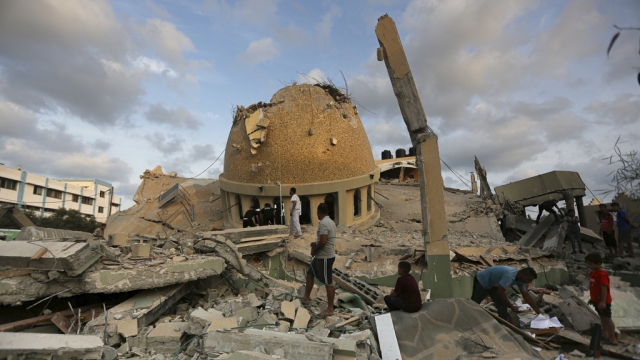Israel's response to Hamas' multi-front weekend attack now includes the quickest and one of the largest mobilization drives in Israel's history as the country declares a "complete siege" on the Gaza Strip, which could push the territory into a new humanitarian crisis.
On Monday, the Israel Defense Forces called in 300,000 reserves, according to an IDF spokesman, to support the country of 9 million people. Israel's military is going on the offensive against the Palestinian military group Hamas.
The imminent operation could mean the country is preparing for a major ground invasion of neighboring Gaza, two days after Hamas launched a surprise assault on southern Israel by firing thousands of rockets from Gaza and taking more than 100 hostages when it descended on border villages.
Since the Saturday attack, control of these areas in Israel has been taken from Hamas, Israeli military officials have said, but Israeli Prime Minister Benjamin Netanyahu said retaliation has "only started" and vowed to "eliminate" Hamas after 900 Israelis died due to the attacks.
SEE MORE: Palestinians caught in fight between Hamas and Israel, expert says
Israel has so far launched at least 800 airstrikes on Gaza, killing at least 500 Palestinians, and called for a total blockade of the Gaza Strip. It has cut off flows of electricity, food, water and fuel into the territory.
Reports say the Gaza Power Plant, which is now the only source of electricity there, could run out of fuel within days. And damage to water and sanitation facilities has cut services to more than 400,000 people, a UN official said. Hospitals are also facing a shortage of medical supplies due to airstrikes, a Palestinian health ministry official said.
The more than 2 million Palestinians living in the Gaza Strip largely depend on Israel for basic supplies due to a blockade already imposed by Israel and Egypt when Hamas seized control of the land in 2007. The blockade prevents most residents from leaving the territory and restricts the import of goods, though it allows some consumer goods through.
Israel says the blockade is to ensure the country's security and contain military escalation from Hamas. Palestinians believe the restriction has destroyed the territory's economy and living conditions.
Trending stories at Scrippsnews.com



